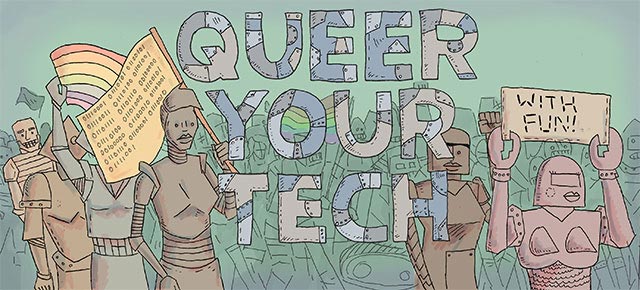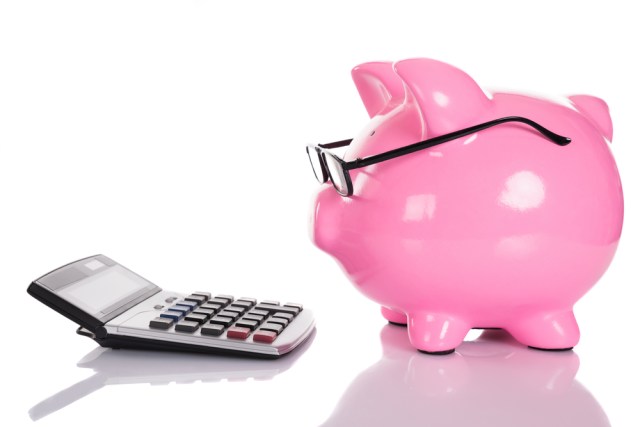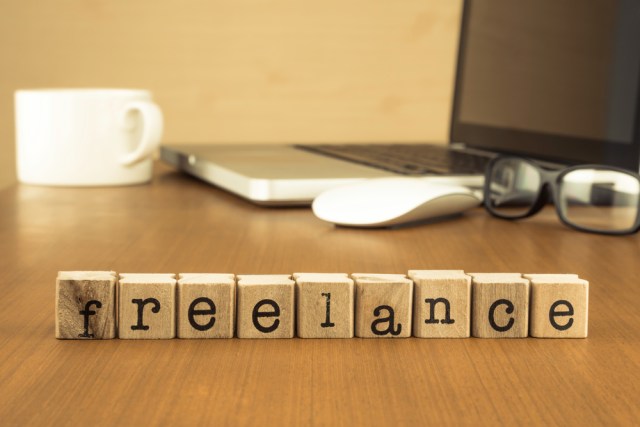
As evidenced by Scout and Andy a few weeks ago, money is hard. As evidenced by the ten hours it took me yesterday to do my taxes, money is REALLY hard. And just…there has to be a better way, ya know? There has to be a better way to money than the way I (and probably a lot of us) are moneying right now.
Hear me out — queer people can and should discuss money. Where it comes from, how to manage it when you have it and how best to go about getting it when you don’t. Like it or not, we (or at least the American readers) live in a society that prioritizes material wealth. When we refuse to mindfully engage in that system, or when we ignore it because we wish we didn’t have to, our inclination to not talk about money becomes a tool in our own oppression. I was really fortunate in that my family was really good; they taught me a lot about money so that I wouldn’t have to find out the hard way later. But y’all know — money is hard. Money is hard whether or not you’ve been inducted into the ways of financial literacy. So how to money? How to money better?
Turns out, technology to the rescue. Here are a few apps I’ve found while researching how to money better, split into categories for exactly what kind of moneying they help with.

Budgeting
Mint.com
Ah, the juggernaut. Mint is the one everyone knows about, and there’s a reason. It’s suite of tools is unparalleled and free, and it’s all powered by Intuit (the trusted company behind Quicken and TurboTax, although I have a bone to pick with them for the way they charge people who’ve moved states within a tax year it’s enough to make you want to move on January 1st whenever one must move BUT I DIGRESS). The major pros involved in using Mint is the ease, of course — everything in one place, allows you to make a budget considering all your your accounts, and everything’s automatic! They even have a credit score checker and will alert you if anything weird happens on any of your accounts.
The cons: one must ask why this is free. And here it is — though Intuit won’t sell information that is identifiable to or as you, personally, it does sell aggregate information. In other words, the sensitive data that Mint has is probably being used to psychologically manipulate us in some way (as with literally all other data we’re putting on the internet). There’s also the fact that all your sensitive banking information is in one place; though one might take comfort in the fact that their security is awesome, it’s still one more entry point for baddies out there looking to steal your information and money. In the end, it’s up to you — I’ve certainly used this in the past because I thought the ability to visualize my money and my goals for my money was worth the minimal increase in risk.
Try Mint. Available for iOS, Android, Windows Phone and as a web app.
You Need A Budget
This is about more than software — You Need a Budget (called YNAB for short) is about their four step approach to managing money. They even have free online classes that teach financial literacy (their way, of course). And the personal accounting software is pretty robus — YNAB has desktop software for Mac and Windows and an app that syncs to it for both iOS and Android (that’s how you enter purchases). You don’t enter your bank account, so there’s not a worry of sharing banking information with third parties.
But there starts the con list — since you don’t enter your bank account, that leaves you entering every transaction (much like a checkbook). If you aren’t going to do that, well, this one might not be for you because software only works if you use it. It’s also pricey — while the mobile app is free, the actual computer software is $60. But! That might be worth it to you because you don’t have to wonder exactly how they can afford not to charge you.
The good news: they have a 34-day free trial so you can decide before you buy. Because it’s not a subscription, there’s nothing to cancel if you don’t like it — the software just stops working. And if you do like it, you just buy it and keep using it without losing any work you’ve already done.
ReadyForZero
Would it be great if, like zeroing out our inbox, we zeroed down our debt? Made specifically for people with a bit of debt on their hands, ReadyForZero helps you build a plan to pay down that debt (whether it’s student loans or credit cards) and then stick to that plan using data visualization and handy reminder notifications. The most important features are free, but one can upgrade to a premium account to pay bills, get live time and interest savings calculations and monitor your credit score. The only major con is that this app does one thing—but honestly? That could be a pro, too. This app does one thing, and it does it well. I guess I’ll have to move the con to their team — can’t they hire a woman for their dev team?
Try ReadyForZero, available for iOS and Android (and on the web).

Saving and Investing
Acorns
Acorns helps you invest the spare change from purchases you already make — it rounds up and puts that change into a portfolio for you based on your risk tolerance (are you conservative? Moderate? Aggressive?). This beautifully designed app can make change grow without you even really feeling it — it’s almost like growing money with money you didn’t know you had. The major pro to this is that you have to know less about investing than if you were investing by yourself. And the fees are low, too: $1 per month on accounts with under $5k, .25% on accounts over $5k. There’s no minimum — and they never charge fees on a $0 account. You can withdraw any time, and they don’t charge trade commissions.
The cons are, of course, the total lack of control. It’s nice not to have to think about where things are invested but…do we really not want to choose where our money goes? Also you currently need to have a smartphone (either iOS or Android) to use Acorns (though they’re working on a web app, coming soon). As with any investment (even ETFs, which aren’t quite stocks), risk is inherent.
Try Acorns (must have an iOS or Android device).
Robinhood
From their about page: “Our mission is to democratize access to the financial markets.” If you want to buy and sell stock but can’t imagine paying a fee simply to purchase a thing and then sell a thing that you own, Robinhood might be for you. Pay just for stock and not anything else. It’s a well-designed app that notifies you of impending changes and provides you with realtime market data. Since Robinhood doesn’t charge fees for sales, they make money by accruing interest on customers’ uninvested cash balances.
However, the major con for this app is that it’s iOS only as of right now, though they’re working on Android and web versions. And of course, the other cons come with the territory of trading in stocks — there’s an inherent risk, one must already know a little bit about the market to succeed (and even knowledge isn’t a guarantee of success).
Digit
Sock away cash without thinking about it. The major pro of this is that Digit is automated —every day it checks your spending habits and, if the robots think you can afford it, siphons a couple dollars into your Digit account. Basically, Digit is there for people who really suck at saving (*raises hand*). It’s a lot like Acorns, but for the more risk-averse among us (*raises hand again*). If you’re worried about the automated nature of it, don’t worry — they have an overdraft guarantee, and if Digit overdrafts your account, they’ll pay the fee (that’s how confident they are that their algorithm will never do that). This is also designed to work mainly through text messages, so you don’t even need a smartphone to see what’s up.
The major con is, though this service is “free,” it keeps the interest accrued on all the Digit accounts as its fee. Now that might not be so bad, frankly — you can withdraw your money, fee free, any time to put it in a savings account that does earn interest and there’s no minimum to how much you have to leave in your Digit account. They’re also eventually planning to share some of that interest back with their customers.
Try Digit. Available for your browser and your text messages, it’s super lightweight.
Just Plain Automated Transfers
Does the idea of a company keeping your interest really get your goat? Never fear — you can always set up a savings account (there are some good options out there, and rarely are they attached to your actual brick-and-mortar bank) and then use your checking account’s online hub to set up regular transfers to that account. It’s as simple as that. The pros are — it’s as simple as that. You don’t need to trust a third party with your banking information, just your bank(s). You just move money. The cons are it can be a lot harder to watch that money vanish from your account, and of course the bank is happy enough to overdraft and then charge you (most of the time — speak with your bank about options for automated transfers). In other words, no algorithm watching out for you.

Small Businessing
Wave
Ugh, Wave has saved my bacon more times than I can count — so many of Wave’s features are free. Create estimates, make and send invoices, do ALL THE ACCOUNTING all in one place. Wave specifically makes its online (web app) software for single person businesses (freelancers) and companies with nine employees or under (they even have payroll for $9 per month). I feel like so many queers are starting businesses or freelancing — is that a queer community trend, or an everyone in a post 2008-world trend? Anywho, Wave makes their money when you take credit cards as a method of payment, when you use the service for payroll or when you upgrade to a premium account where you can call for advice. I have not found a downside to Wave yet — I suppose the same as above would apply if you enter your banking information with them, as they do have Mint-esque bank account tracking component, but since I only use them to keep track of my freelance invoices and payments because entering bank account information isn’t required, nope. Not a downside.
GeniusScan
I’ve recommended it, like, 60 times, but KEEP TRACK OF YOUR BUSINESS-RELATED RECEIPTS. Keep track of them. I spent an hour yesterday looking for a receipt that I swore was in a safe place. That’s all you need to know. An hour of my day, gone. And all for a stupid tax deductible car rental.
They have a free version, as well as a full-featured version for $6.99. There is no excuse.
So what did I miss — what are you using? Happy Moneying, everyone!








Comments
I LOVE Digit. I’ve been using it for a month or two, and it’s a great little program so far. It starts out really slowly/carefully (it’s not going to be siphoning even $10s out of your account at the beginning), but their algorithm pays attention to your cashflow and ramps up appropriately once it figures out how you generally spend money/where and when your big influxes and expenses are. I do wish they had an app, but the text-message-focused activity-flow is actually pretty intuitive once you get used to it!
Also, you can add your Digit account to Mint, so you can actually see it there, too!
Does anyone use Shoebox? If so, what are your thoughts? I just quit my steady (NINE YEARS STEADY), salaried-with-amazing-benefits-yet-soul-crushing corporate job to freelance, so I’m intimidated by all this receipt tracking as well as next year’s taxes. Am eager to try Digit, Wave, and GeniusScan now…
Hey cool! I have wondering about ways of doing investing (this is how you grow more money, seems like) but want to just like dip my little toes in and not just throw money off a boat and hope for returns.
LOL @ the image of you standing on a boat and hurling cash into the ocean and asking the dolphins to find you more like this.
“Flipper? Buddy? Seaweed isn’t money, dude.”
I use Excel for budgeting. And the free financial planner d00d at my credit union for managing debt/retirement savings. And the Money articles in the free NYTimes online are pretty good for Personal Finance 101 info, like risk-v-return for different retirement investment plans like 401k, and buy-vs-rent stuff.
But these apps all look awesome and I might treat myself to one or more of them; very appealing and informative. I would feel super on top of things with a personal finance app!
All these sound great but I wish some of the apps were available in my country.
Off I go to see what i can find!
Hey, just FYI—since YNAB isn’t one where you plug your accounts in and it live updates, it’ll work in any country. And since researching this article, I’ve totally been using it. I’m a lil’ obsessed with it.
Not an app, but the website The Empowered Dollar (http://www.empowereddollar.com) has some good stuff on it. And earns bonus points for having fun cartoons mixed in with all of the heavy money knowledge. [Sidenote: the person who runs it and I were in the same class in elementary school.]
Oh hey! I love this! Thank you!
One of most grown up thing I think I’ve ever done was set up $25 to be put into savings from my checking every month. It gets me free checking but its a small enough amount that I don’t miss it but I’m at least putting SOMETHING away.
The second most was getting into the habit on the night before payday of transferring 1/2 of my remaining checking balance into my savings. $200 or $2. Doesn’t matter, into savings it goes. 1/2 just in case something goes wrong with payday or something explodes and because doing all of it makes me panic and wibble.
(and for those ‘Straddlers who work corporate type jobs and their company does a 401k? If you ever get a raise, immediately raise your 401K contribution by half of whatever percentage your getting as a raise. You haven’t yet learned to spend that money so you might as well sock it way without thinking about it.)
i can’t even read this article. way too much anxiety. i will go hide in my moneyless hole now.
Yes, I had to put Practical Magic and then Bewitched on in the background while I was doing my taxes/making my budget for the rest of 2015. I actually then asked team Autostraddle what movies on Netflix had witches in them because witches were the only things making me feel better. It was then that Mey and Riese told me that Teen Witch is on Netflix, and I haven’t watched it yet but I plan to, the next time I have to do anything related to my own money or write 1500 words about money.
Or the short version of this comment: make your budget to the soundtrack of witch movies.
I really liked Carmen’s advice for making a budget when your income is very small, like $10/week food budget. She’s so positive and reassuring about getting into it! It made me feel so much better about thinking about my money situation options when I read it.
Toshl.com is amazing for expense tracking (and budgeting). Really simple, quick and easy to use, with powerful reporting.
Pocketsmith.com is the Australian/NZ alternative to Mint.com, and is awesome.
This inspired me to finally set up a savings account with automatic transfers. Adulthood!
I just use the automated payment thing to save – when I was flat broke it was £20 per month or less some months, and now it’s £100 per month. I have a massive feeling of pride from putting money away like this – I don’t have megabucks saved but it’s something.
I use PayPal for all of my work and payments now – I run two separate businesses and PayPal does all of my income in neat charts, country by county, month by month. It’s on my phone so I can check my earnings, move money around etc on the go. I have PP linked to my savings account too so if I ever get paid a little more one month, I can skim off a few hundred extra before I have the chance to feel rich :)
What is the gay to straight money conversion rate. Does it depend on whether Ellen has a project that’s doing well at the time?
I’m gonna have SO MUCH MONEY! I’m so excited and I JUST CAN’T HIDE IT!
I am a HUGE fan of YNAB (You Need a Budget). By making you enter each transaction, it forces you to think every time you spend money, and so it forces me to go, “Maybe I don’t need another lipgloss.” It’s super easy to move your money within your budget around as things come up and that flexibility is a must for me. And because you only deal with the money you have when you have it, I think it’s particularly good for people with inconsistent income. Their financial method is very similar to the Dave Ramsey method and several other method’s I’ve seen, but just electronically instead of using cash for everything. Feeling like I have a plan with my money makes me feel so much better about my constant state of brokeness.
I know I sound like a commercial, but I would highly recommend it to anyone!
I can’t sing the praises of YNAB (You Need a Budget) enough. First of all, you get free access beyond the 34 day trial if you are a college student.
This program is best for those of us that really have to watch every single dollar. If you are just curious about where your money goes but you are not in danger of going broke, losing your apartment, or just generally having a dramatic decrease in your quality of life, then use Mint.
For the last 5 years, my wife and I have been crawling out of a financial pit caused by a combination of a motorcycle accident that disabled my wife, both of us losing our jobs at the same time, and a smorgasbord of other sucky sucky things. It sounds weird that a budgeting software would change someones life, but IT DID. Before we would be standing in the aisles of our bargain grocery store debating between buying two cans of recently expired cans of soup or three cans with only an intuition to guide us. “Well, I mean I think we have enough. We have to pay rent next week. We have to do laundry this Saturday. Ummm…what does that leave us? Should we just go for it?”
Yeah, having to input every purchase takes time but so does having to break your lease and move into your parents house with your tail tucked between your legs. Inputting every purchase makes you actually think “Why am I buying this? Do I need this? How much money do I have left in my alternative lifestyle apparel fund for this month?”.
It’s really funny you mention ReadyForZero’s dev team – one of my close friends is on it and I have talked to him about exactly this! I agree it’s a problem, but the company is really well-intentioned and the people who work there are great. Just thought I’d throw that out there.
About once a year You Need A Budget goes on sale for $15 for those who have a Steam account. This past winter I picked it up and haven’t regretted it since.
What section did you find it under on the steam store? I just looked for it, and I’m at a loss.
If you live with other humans, is a great way to track shared expenses. Good for relieving stress induced by not knowing whether you and your girlfriend are putting an equal amount of money into your shared life or not.
Ack, so apparently I no can has correct HTML. That whole huge link goes to a cool, free thing called Splitwise.
I already use mint and like it quite a bit. Setting up a budget was a big help for me, and it also allows me to see all my “everyday” accounts in one place, which is super helpful for getting a sense of my overall financial stability.
I have been wanting to try Digit for a while now. I was going to wait until I pay off my credit card debt. Perhaps I will set up Digit anyway and just transfer everything back to my checking each month to put towards credit card debt until it is paid off…
I primarily use mint as a tool to track and view all financial accounts in one place. It’s nice for setting goals and helps track your progress and shortfalls. For investing, acorns has been great as a low barrier to entry and low financial commitment app. I’d also recommend Betterment, as it allows you to open retirement accounts and has an “advice” feature I like to use for “what if” scenarios.